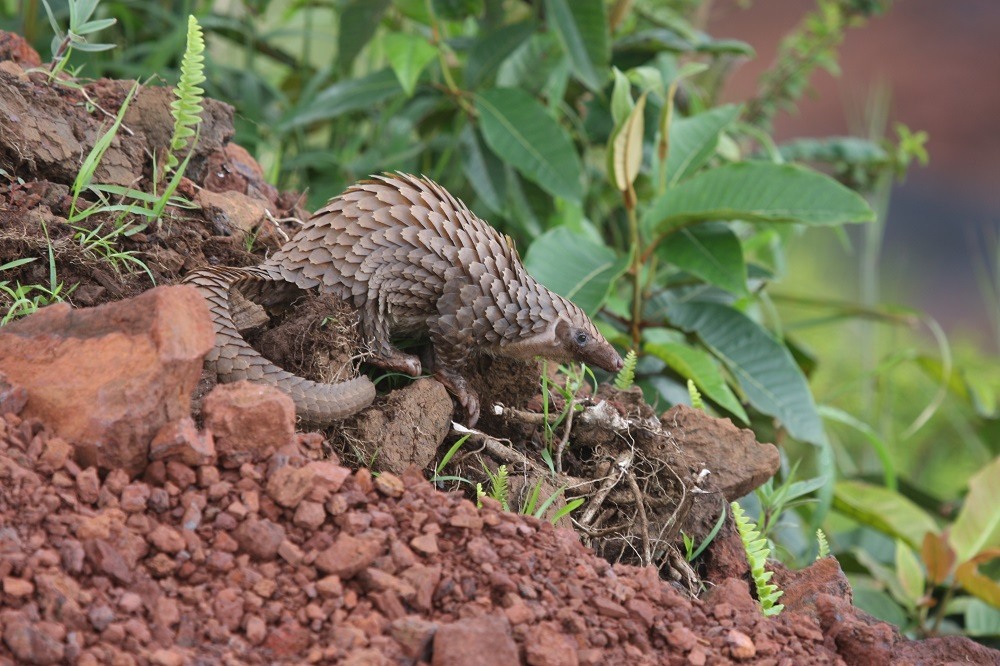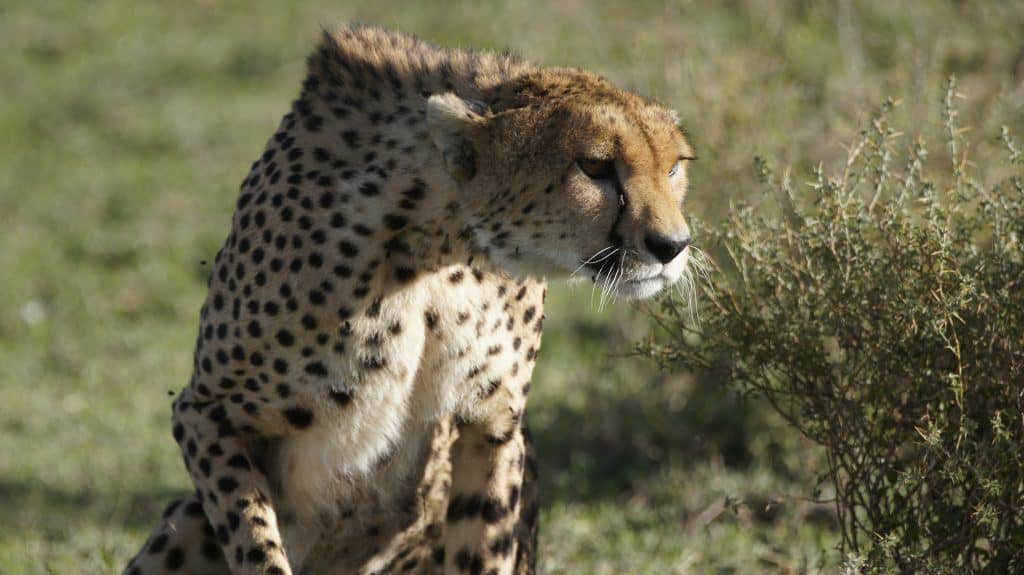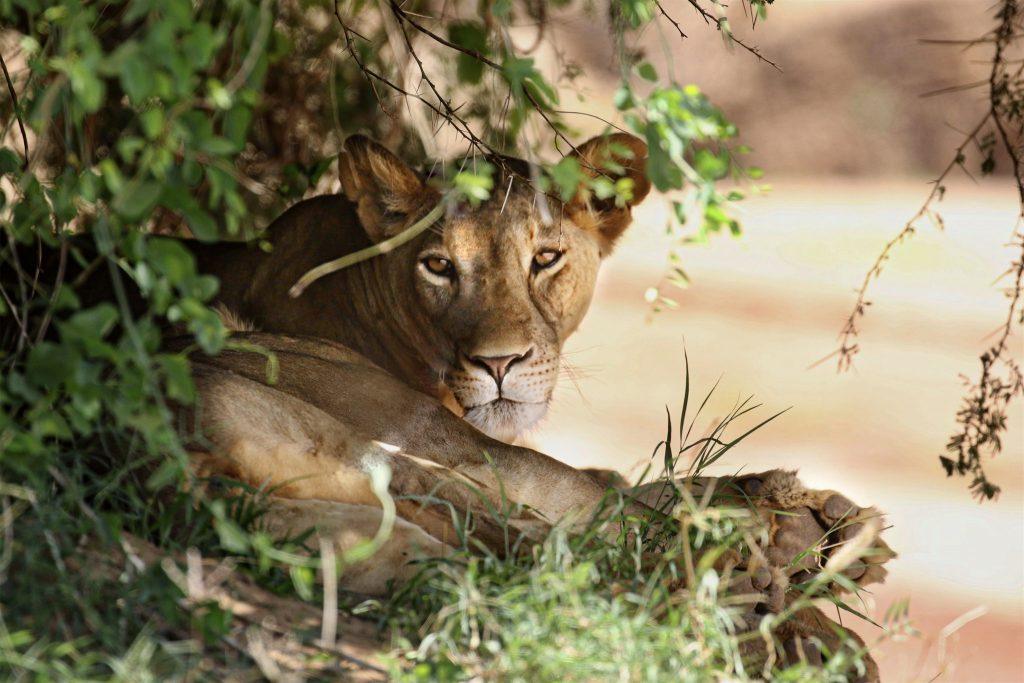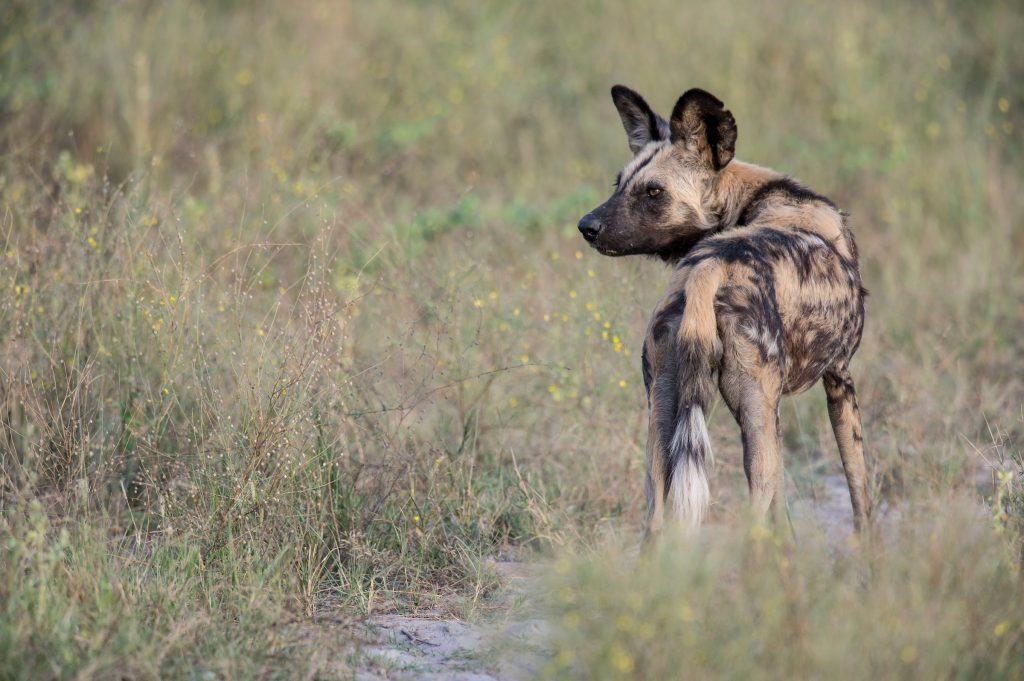This year’s cohort of WCN Scholars is an inspiring group of 14 talented young conservationists championing the protection of endangered wildlife.
Spanning the globe from Costa Rica to Zambia, our 2020 scholars are at the forefront of new approaches to community-based conservation, tackling issues like poaching, human-wildlife conflict, and disease transfer between domestic and wild animals.
In Nigeria, Charles Emogor is collecting novel ecological and social perception data on the white-bellied pangolin as part of his Ph.D. research at the University of Cambridge. He is conducting the first-ever species study of pangolins in the Cross River National Park region, which is much-needed in light of Nigeria’s role in global pangolin trafficking. Through his research, Charles expects his distribution modeling will better inform anti-poaching measures and influence shifts in local community attitudes toward the pangolin.

Pangolin range stretches westward into Gabriel Antwi-Boasiako’s home country of Ghana. Gabriel is motivated to protect West Africa’s pangolins, African elephants, and several crocodile species from pervasive human pressures. For his master’s degree in Conservation Leadership from the University of Cambridge, Gabriel is working on a project to strengthening enforcement against the illegal wildlife trade in Liberia and Guinea, with a particular focus on pangolins. The project aims to build in-country and community-based capacity to discourage, identify, and respond to wildlife crime in these areas. Gabriel will be developing a theory of change to address the illegal wildlife trade in West Africa.
Far to the east, Ambika Prasad Khatiwada is researching the Chinese pangolin. In his home country of Nepal, Ambika is generating a nationwide species distribution model, assessing pangolin range, and investigating community attitudes in relation to illegal pangolin hunting. With the outcomes of his Ph.D. research at the University of Oviedo, Ambika aims to provide evidence-based data to inform Nepal’s conservation strategies for Chinese pangolins at the national and local level.
For over ten years, Tapologo Connie Sebati has worked with Cheetah Conservation Botswana and is now gearing up to pursue an online MA in Development Studies from the University of South Africa. Connie will be examining how the inclusion of women in conservation can contribute to sustaining cheetah populations. She surmises that “conservation is successful when we understand the relationship between people, and between people and their environment.”
In neighboring Zambia, Kambwiri Banda works full-time with the Zambian Carnivore Programme as a wildlife veterinarian in Kafue National Park. As he earns his master’s degree from the Swedish Agricultural University, Kambwiri will be conducting ecological research to assess the impacts of snared lion rescue in the Kafue and Luangwa Valleys. Snaring is a major threat to lions in these ecosystems, and immediate medical response is essential in maintaining the population. This degree, combined with his skills as a veterinarian, will give him the necessary skills to help ensure that new generations of lions can thrive in Zambia.
In the heart of Uganda, Patrick Okello is also working on big cat conservation as a veterinarian in the Murchinson Falls area. Patrick’s research for his online master’s program from the University of Edinburgh will focus on the incredibly timely topic of zoonotic diseases in lion and cheetah populations. Patrick aims to understand the accelerating circulation of diseases between wildlife, livestock, and surrounding villages in increasingly fragmented habitats. His work is part of the burgeoning One Health community approach to conservation that recognizes the interdependent health of ecosystems, species, and people.
Shaleen Angwenyi is also applying the One Health approach to African painted dog conservation in Kenya. As habitat fragmentation is rising, so are interactions with domestic dogs and the transfer of infectious diseases to painted dogs. For her degree, Shaleen will be investigating how the interactions between wildlife, domestic animals, and humans are leading to the rise of canine distemper outbreaks in northern Kenya’s painted dog population. She will be completing her research at the University of Bristol for an MSc in Global Wildlife Health and Conservation, gaining new skills to advance her career as a wildlife veterianian. Shaleen hopes that her results will aid infectious disease management efforts for painted dogs.
This is just the first half of our 2020 scholarship recipients. From conserving the highly-trafficked pangolin to the emblematic predators of the savannah, this year’s WCN Scholars are pioneering innovative and inclusive approaches to wildlife conservation by collecting valuable data and developing community stewardship around the world.
Part 2 of this blog series covers the second half of WCN’s 2020 Scholars and their work with diverse species. Read it here.




